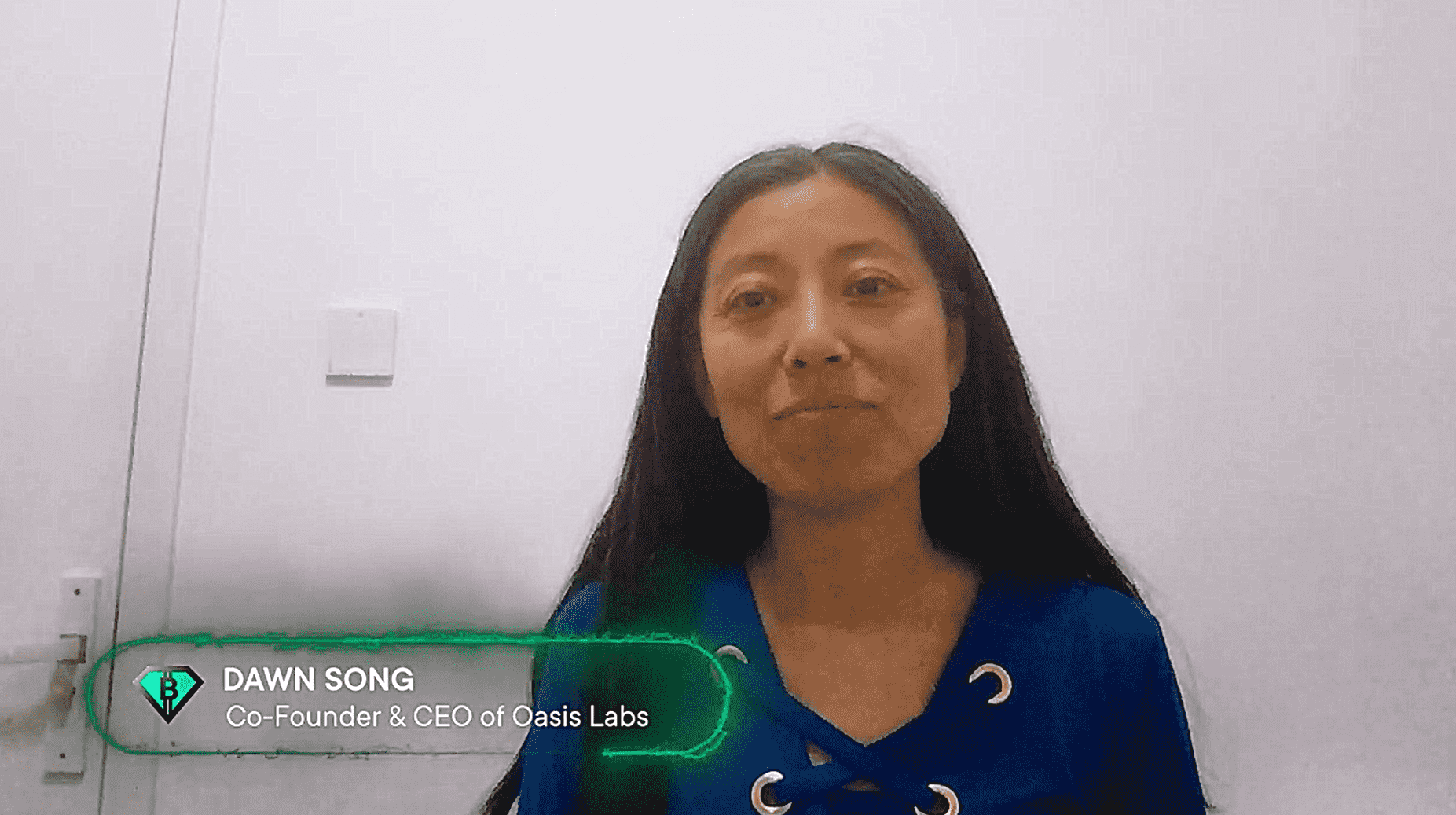 Why Oasis Labs’ Dawn Song is big on privacy, quantum-resistant blockchains, and DeFi 2.0
Why Oasis Labs’ Dawn Song is big on privacy, quantum-resistant blockchains, and DeFi 2.0 Why Oasis Labs’ Dawn Song is big on privacy, quantum-resistant blockchains, and DeFi 2.0
Ever since smart contracts and blockchains gained prominence in the past few years, the concept of building scalable public ledgers that automatically handle and act on multitudes of data sources has caught on. Professor Dawn Song of the University of California at Berkeley is one such entrepreneur working on that front. A Chinese American academic […]
Ever since smart contracts and blockchains gained prominence in the past few years, the concept of building scalable public ledgers that automatically handle and act on multitudes of data sources has caught on.
Professor Dawn Song of the University of California at Berkeley is one such entrepreneur working on that front.
A Chinese American academic and teacher at the university’s Electrical Engineering and Computer Science Department — Song ties in years of her own studies and experience as a professor to building Oasis Network, the first scalable, privacy-enabled blockchain platform enables scalable, private DeFi, data tokenization, and a responsible data economy.

In an interview with crypto edutainment platform Cryptonites host Alex Fazel this week, Song spoke her mind on the ongoing generational shift to crypto, the intersection between AI and security, and concerns with smart contracts in DeFi, among other topics.
As an entrepreneur and professor of her stature, the interview was one you wouldn’t wanna miss. Here’s a short purview of what Fazel and Song discussed.
Blockchain an ‘exciting’ frontier
Song kicked off the session by speaking about the perception of blockchain technology and cryptocurrency among her students at UC Berkeley. Blockchain remains to be an exciting area for the students. I would say during the last boom (2017/18) time when I offered a blockchain class it was standing room only.”
She added, “Blockchain is a fascinating field so we continue to see students’ interests. But I definitely think the market actually does have some impacts on the level of interested students as well, which is not too surprising.”

Speaking on her interest in blockchain technology, Song noted much of blockchain merges with the field of security alongside a “lot of interesting things” coming from economics and incentives and so on as well.
“Blockchain in conjunction with secure computing and so on that can help solve some of the challenging [issues] to help solve the data problem. It’s about how to make sure that you can get data and have an at the same time to protect the privacy of data.”
DeFi…and DeFi 2.0
Fazel then asked Song’s thoughts on DeFi applications, the crypto sub-sector that has, in recent times, spurred into a billion-dollar industry and attracted widespread capital and media attention for various use-cases, such as generating revenues for token holders.
For Song, security and trust form the number one concern in such use-cases. “The whole point of blockchain in a permissionless setting is to have a distributed protocol and entities coming together to reach consensus,” she said.
“And given that a certain fraction of the entities may misbehave and so on, having a secure, consistent protocol and to making sure that the system can be secured when a certain fraction of the entities, are malicious is of course really important.”
Meanwhile, Fazel asked Song about what the Oasis Network team has been up to, especially in terms of a purported “DeFi 2.0” where data yields and revenue sharing based on the amount of data shared between entities presents a newer avenue for the industry.
Song stated:
“The future will have much more data as more and more data will be collected about users and so on. And hence it’s important to actually help users to gain benefits from their data, but of course, in a privacy-preserving way, and then in a responsible way.”
The threat of quantum computing to blockchains
The imminent threat of quantum computing, a topic that has been discussed both by the average crypto individual and in academic circles, was next on the list of things that Song spoke on.
For the uninitiated, quantum computers — which are theoretically capable of performing trillions of calculations per second — have been called a threat to blockchain technology as such machines can guess transactional keys and break essential passwords, effectively breaking down a robust blockchain.
Song said to counteract such an issue, the future and upcoming blockchain solutions must necessarily take steps to be quantum-resistant. “It’s good to build strong, secure solutions that can be resilient against in the future as well,” she noted.
(The above is part of a Cryptonites interview available for streaming in full below. It has been edited for clarity and brevity.)



 CryptoQuant
CryptoQuant 

























































